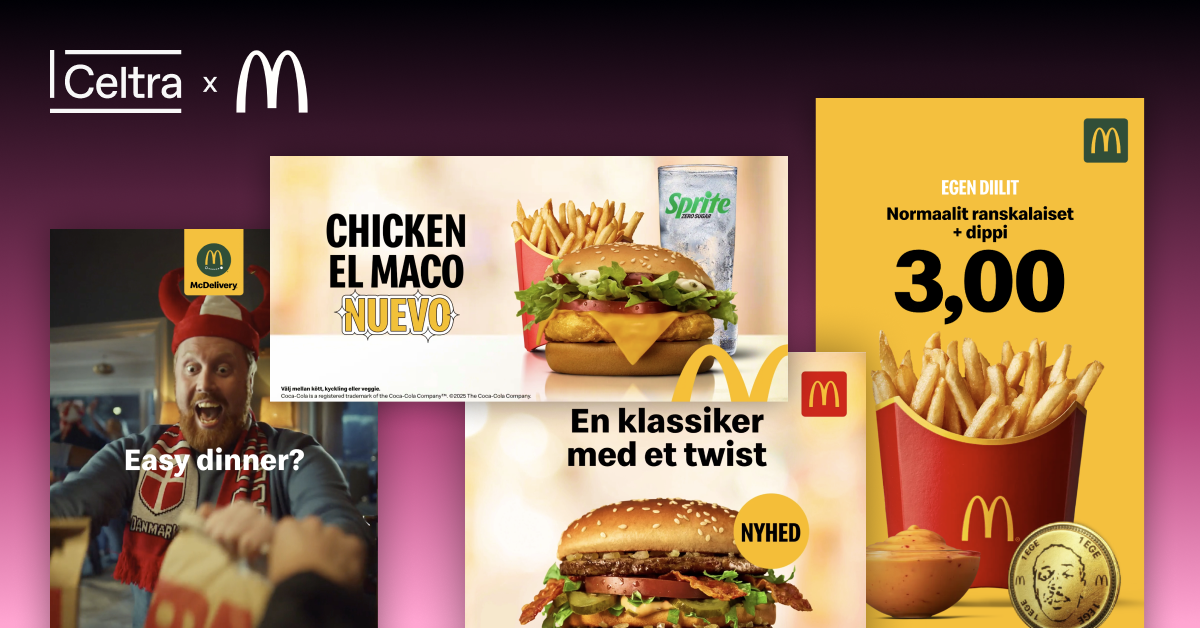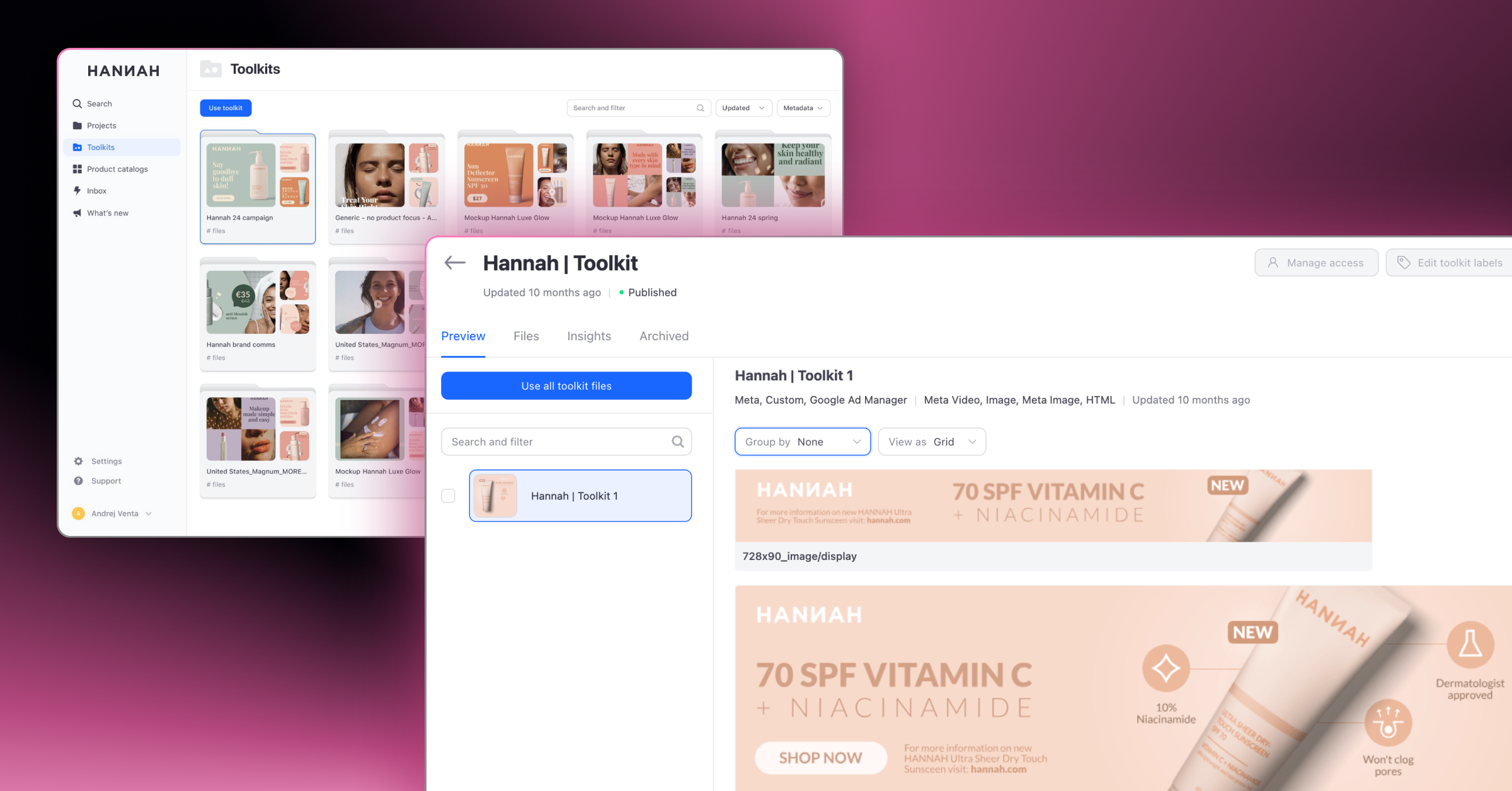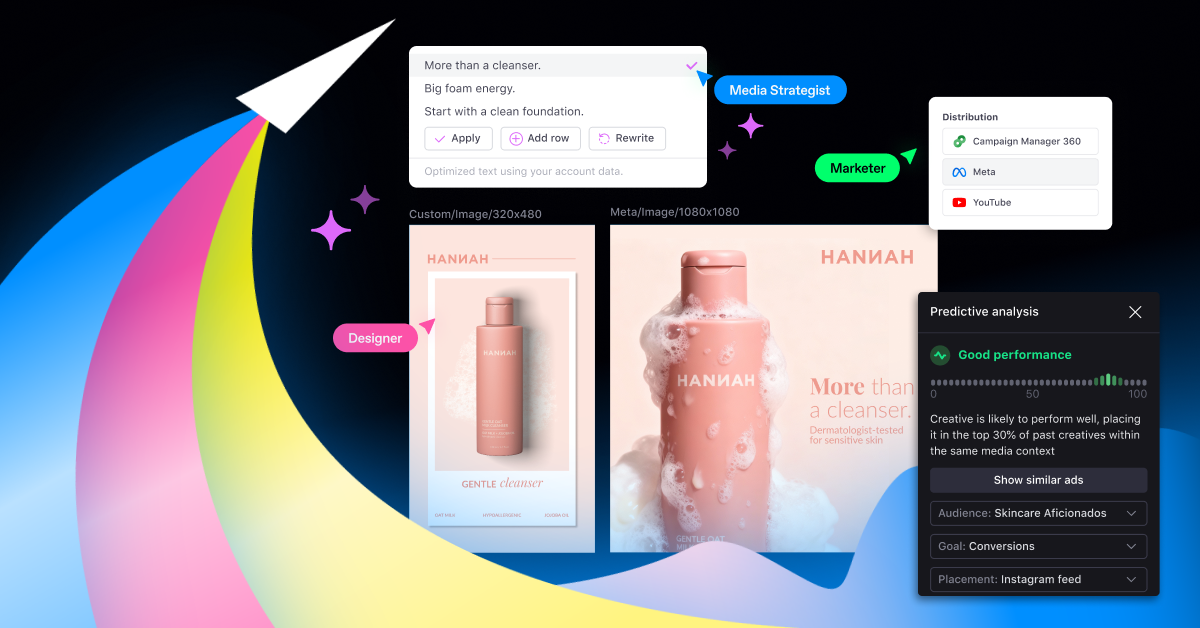What happens when one of the world’s largest advertisers joins forces with a creative tech powerhouse? You get a masterclass in modern marketing. At Cannes, Celtra founder & CEO Miha Mikek sat down with Ryu Yokoi, Chief Media and Marketing Capabilities Officer – Personal Care and NA, at Unilever, for a candid and compelling conversation on agility, creative automation, and building relevance at scale.
Spoiler alert: the future is modular, measurable, and moving fast.
Building desire at scale
Ryu’s vision for Unilever is focused on commerce-forward and social-first marketing. For him, creating desire at scale isn’t about chasing viral moments. It’s about understanding communities, showing up on the right occasions, and delivering creative that feels both relevant and real.
Unilever’s strategy is entirely built around end-to-end thinking, a system designed to fuel both brand growth and business outcomes. It starts with a commerce-first proposition, centers around the right communities and conversations, and shows up across every touchpoint with intention. Creative toolkits like Celtra help bring those experiences to market with speed and consistency.
In a landscape where algorithms favor ultra-relevant personalized content, this approach goes beyond effectiveness and becomes essential.
A new era of agility
There was a recurring theme in Ryu’s perspective: Agility is everything. Two years ago, Unilever pivoted hard into social, which exploded their content needs. To keep up, they didn’t just scale – they reinvented their entire creative supply model.
Ryu shared how Celtra’s modular creative framework enabled Unilever’s NA market to fully transition to modular production in just eight months. As a result, the team unlocked key creative advantages, including:
- Faster adaptation to cultural moments
- Greater content remixing at scale
- Reduced creative fatigue
- More efficient localization with consistent quality and control
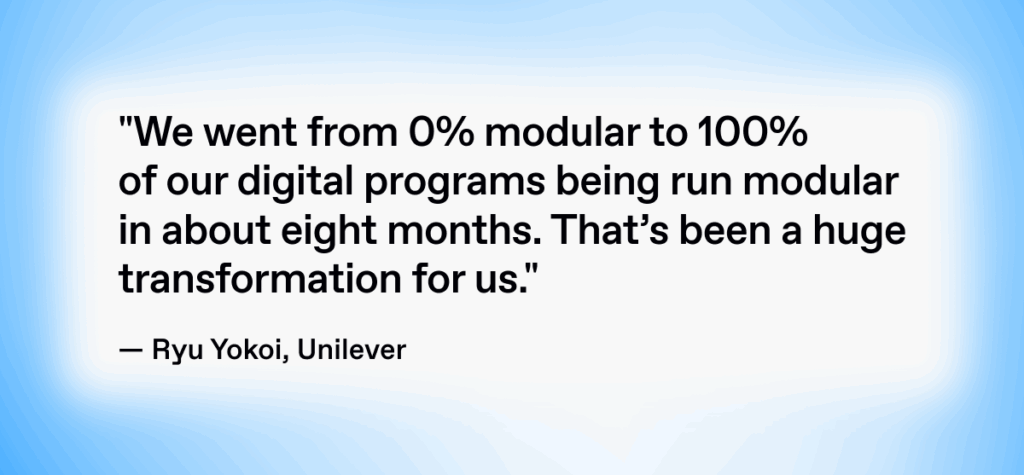
In Ryu’s words, “The work that we’ve done with Celtra has been really important for us in that regard.” For Unilever, agility is not just about moving fast. It’s about being prepared, anticipating creative needs, and having the systems in place to deliver at scale. Modular design makes that possible.
Unilever’s outcome-driven culture
What also stood out was Unilever’s ambition to be the world’s most outcome-oriented advertiser. Ryu described how measurement has become its own discipline, designed to drive decision-making with speed and precision. Audience and shopper insights now inform every stage of the creative process, and media is seen not as support, but as a growth engine.
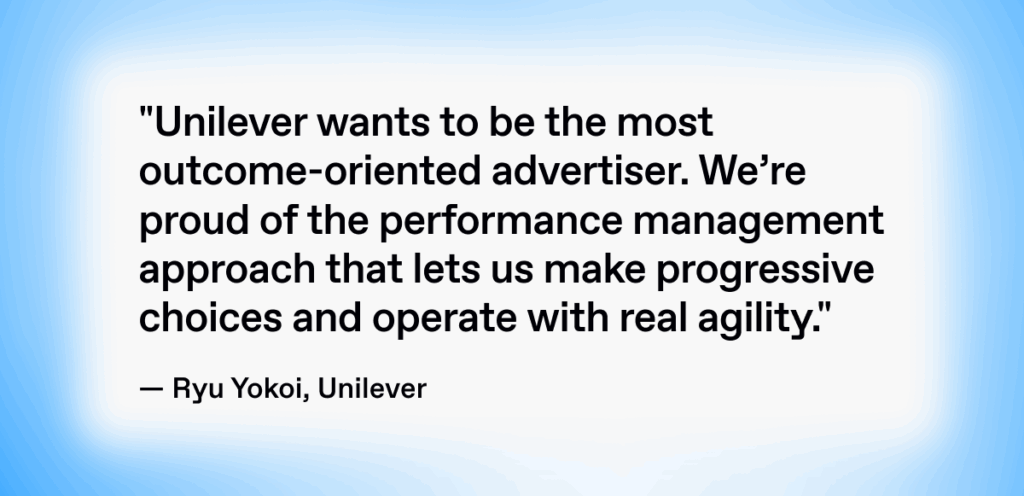
Unilever closely tracks creative fatigue as a leading performance signal, using freshness and rotation patterns to understand when content needs to be refreshed and how much scale is required to maintain effectiveness.
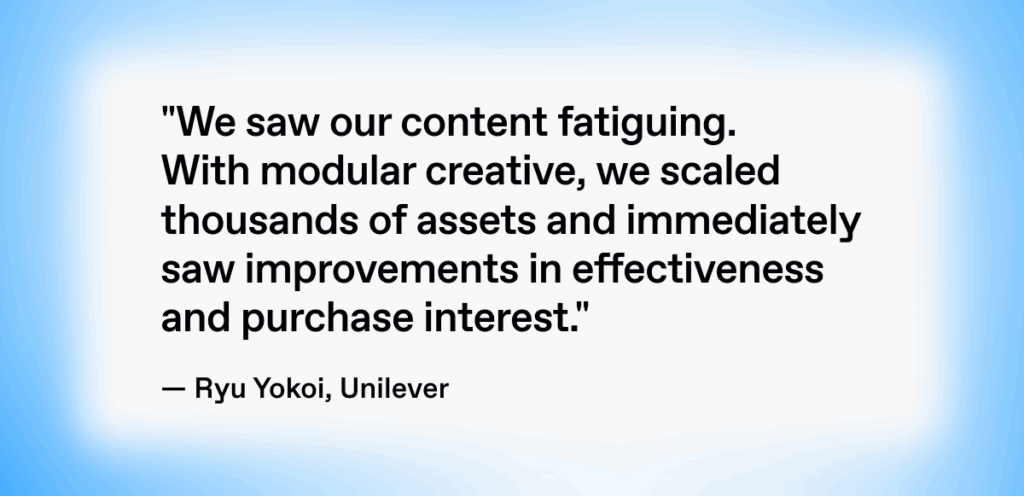
This kind of precision requires a tech-enabled creative supply chain. With Celtra, Unilever now delivers modular templates, automates content versioning, and enables cross-market scaling, all while maintaining brand integrity.
The future is modular, automated, and agentic
AI is quickly becoming a core part of the marketing toolkit, and Unilever is already applying it across audience targeting, content extensions, and creative testing. Ryu touched on how AI is reshaping:
- Targeting precision and media buying through platform-native AI tools
- Creative scaling via automated extensions and testing
- Workflow efficiency through predictive creative analysis
But he also pointed to something deeper: a shift toward “agentic” systems; interconnected platforms that enable marketers to move faster, think smarter, and work more cohesively. He summed it up with three north stars: agility, scale, and diversity. These aren’t optional anymore. They’re the fundamentals of modern marketing.
Final takeaway
This session wasn’t about theory. It was about how one of the world’s biggest advertisers is actually executing creative transformation today. Ryu Yokoi’s message to marketers is clear: if you want to win, you need a creative supply system that moves as fast as culture. And that starts with creative automation.
Unilever’s story shows what happens when a bold vision meets the right creative technology. As Celtra continues to help global brands modernize their marketing systems, this is the blueprint for what creative transformation looks like in practice.


